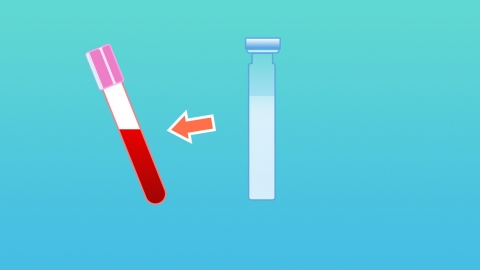What to do about low high-density lipoprotein cholesterol
Generally, low high-density lipoprotein (HDL) cholesterol levels may be caused by long-term sedentary behavior with insufficient physical activity, an unreasonable diet structure, obesity, type 2 diabetes, hypothyroidism, and other factors. It is recommended to seek timely medical consultation to identify the underlying cause, and then improve the condition under a doctor's guidance through lifestyle adjustments, medication, and other methods. A detailed analysis is as follows:

1. Prolonged sitting with insufficient physical activity: Long-term inactivity slows the body's metabolic rate and reduces the liver's ability to synthesize HDL cholesterol, leading to decreased levels, often accompanied by physical fatigue. It is recommended to engage in at least 30 minutes of moderate-intensity exercise daily, such as brisk walking, jogging, or cycling.
2. Unreasonable diet structure: Long-term excessive intake of saturated and trans fatty acids may inhibit HDL cholesterol synthesis, resulting in reduced levels. Adjust the diet by decreasing consumption of these fats and increasing intake of unsaturated fat-rich foods such as olive oil, deep-sea fish, and nuts.
3. Obesity: Excessive fat accumulation in the body, especially abdominal fat, interferes with lipid metabolism, causing HDL cholesterol levels to drop. This is often accompanied by excess weight and reduced exercise tolerance. Managing weight within a healthy range through calorie control and increased physical activity can reduce metabolic interference caused by fat. It is also important to avoid binge eating and develop regular eating habits.
4. Type 2 diabetes: Insufficient insulin secretion or impaired insulin function affects lipid metabolism, reducing HDL cholesterol synthesis, often accompanied by symptoms such as polydipsia (excessive thirst), polyuria (frequent urination), and weight loss. Patients should follow medical advice to use medications such as metformin hydrochloride tablets, insulin injections, and glimepiride tablets to control blood sugar levels.
5. Hypothyroidism: Reduced secretion of thyroid hormones slows the body's metabolism and impairs lipid clearance capacity, leading to decreased HDL cholesterol levels. Symptoms often include cold intolerance, fatigue, and bradycardia (slow heart rate). Patients should follow medical advice to use medications such as levothyroxine sodium tablets, thyroid extract tablets, and enteric-coated levothyroxine sodium tablets to supplement thyroid hormones and restore normal metabolic rates.
In daily life, smoking and excessive alcohol consumption should be avoided, as harmful substances in tobacco and alcohol can damage vascular endothelial function and impair HDL cholesterol activity. Through comprehensive lifestyle modifications, HDL cholesterol levels can be gradually improved to promote cardiovascular health.





